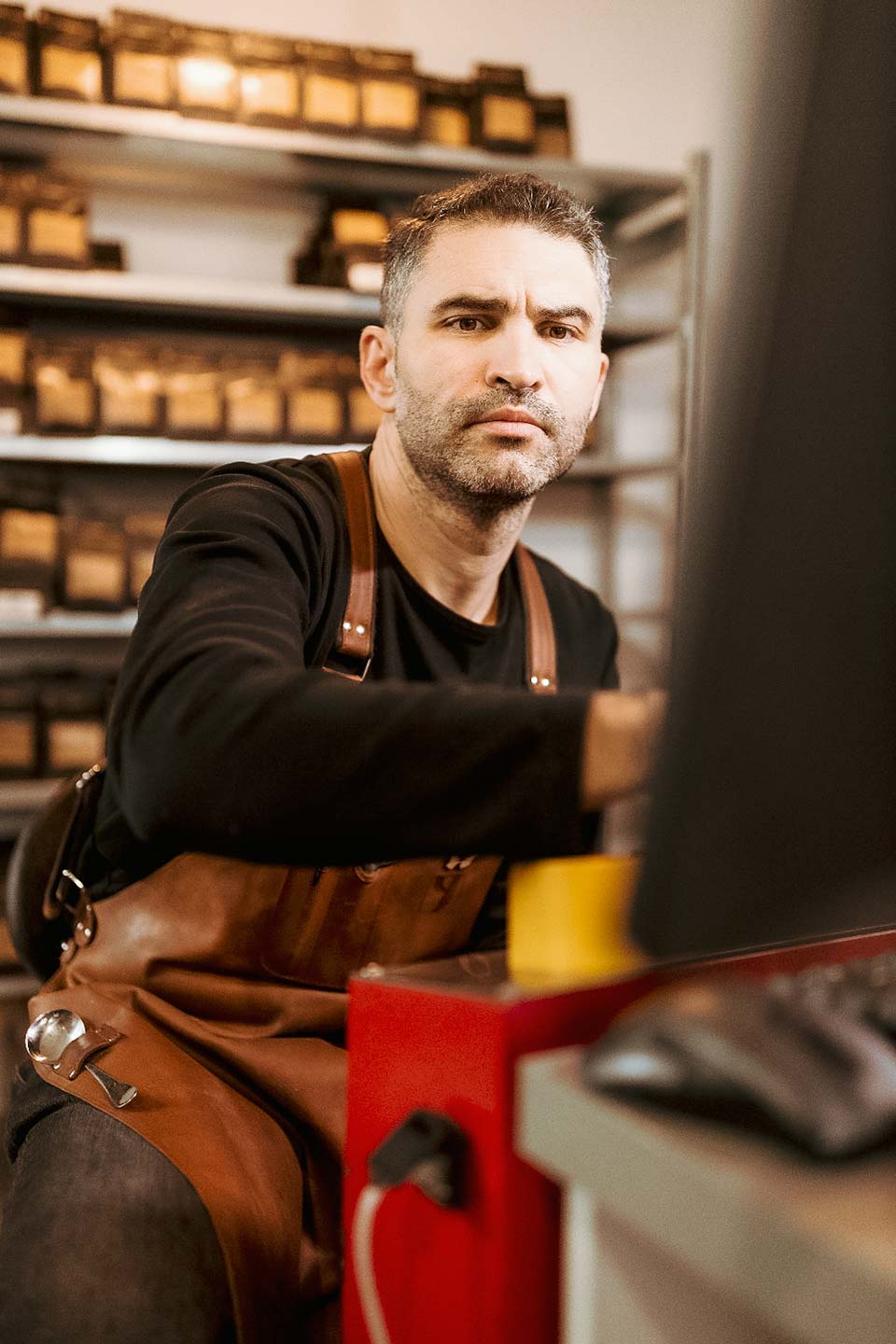
Cherishing Life’s Little Moments and Coffee
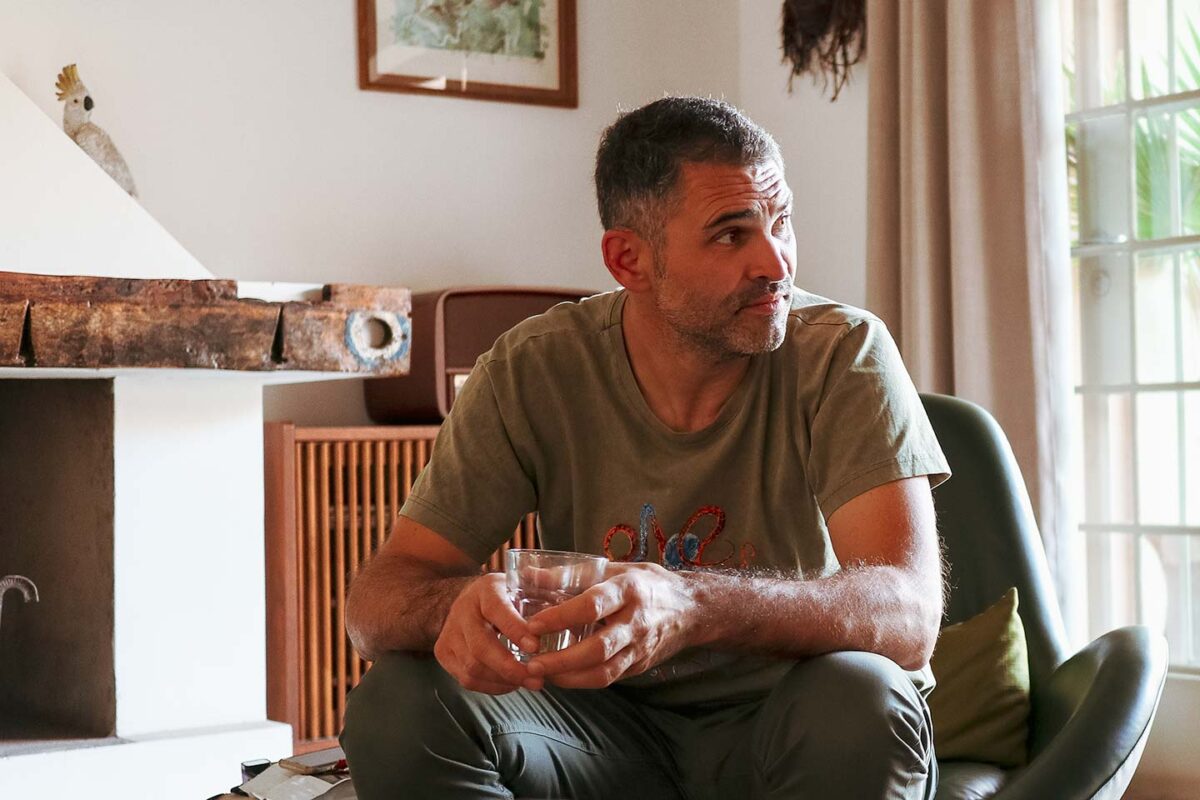
In Romania, where even freshly roasted coffee is rare, specialty coffee has a very small market. Making a name for themselves in this tiny niche is YUME Coffee Roasters. Founded in 2014, they’ve been sharing the appeal of specialty coffee with an open-minded approach to customers.
For Razvan Rosu, co-founder and head of roasting and green bean sourcing, this visit to Tanzania and Kenya was his first visit to an origin country. Razvan had a business in logistics and decided ten years ago to join the coffee industry. We spoke to him to find out what this trip meant, and what he learned.
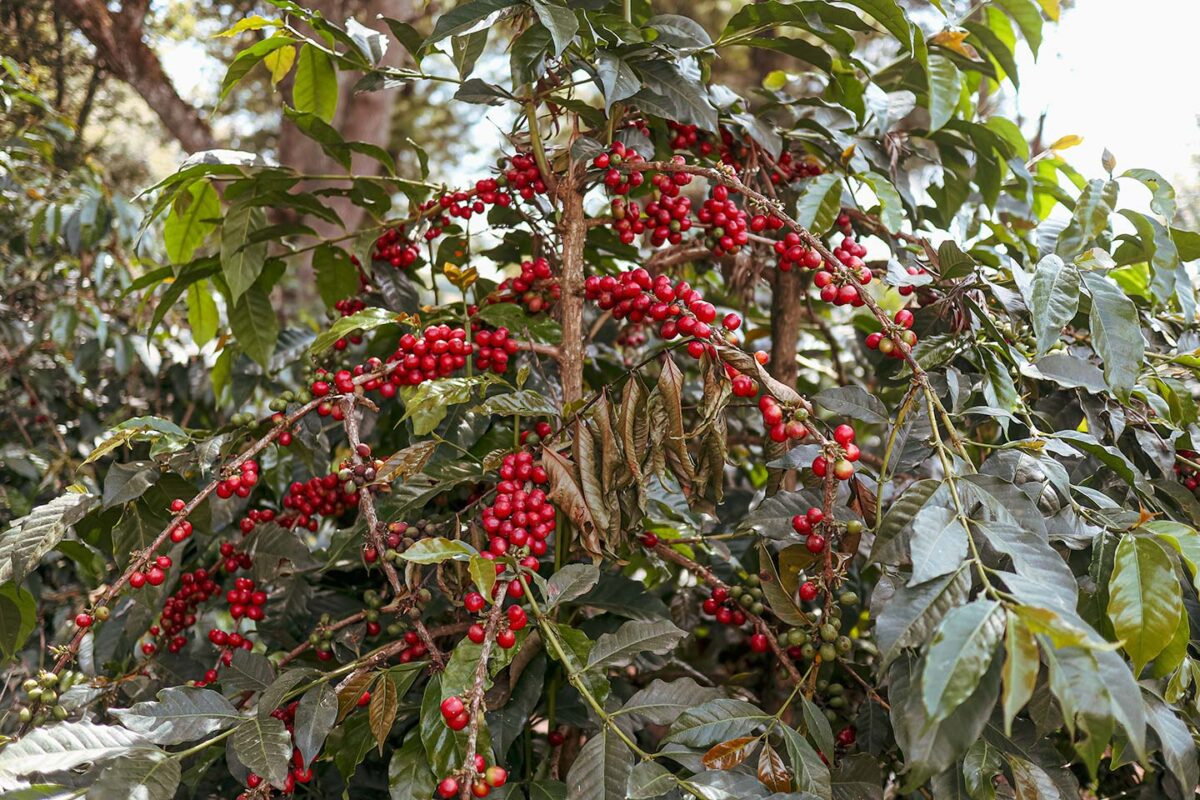
Motivated by gratitude
I’ve read books on growing and processing coffee, but visiting a coffee origin gives you a very different level of understanding. In Kenya, I was able to pick up some details that I wasn’t aware of before, and I could see how the terroir and agricultural practices gave Kenyan coffee that exceptional and distinctive flavor. In Tanzania, one of the biggest surprises for me was the level of clarity and cleanness of the cup. I could really see the potential there to make great quality coffee.
But I think the biggest takeaway for me was a reminder that great coffee is thanks to the hard work of the farmers, the pickers, the quality teams, and everyone involved in the process.
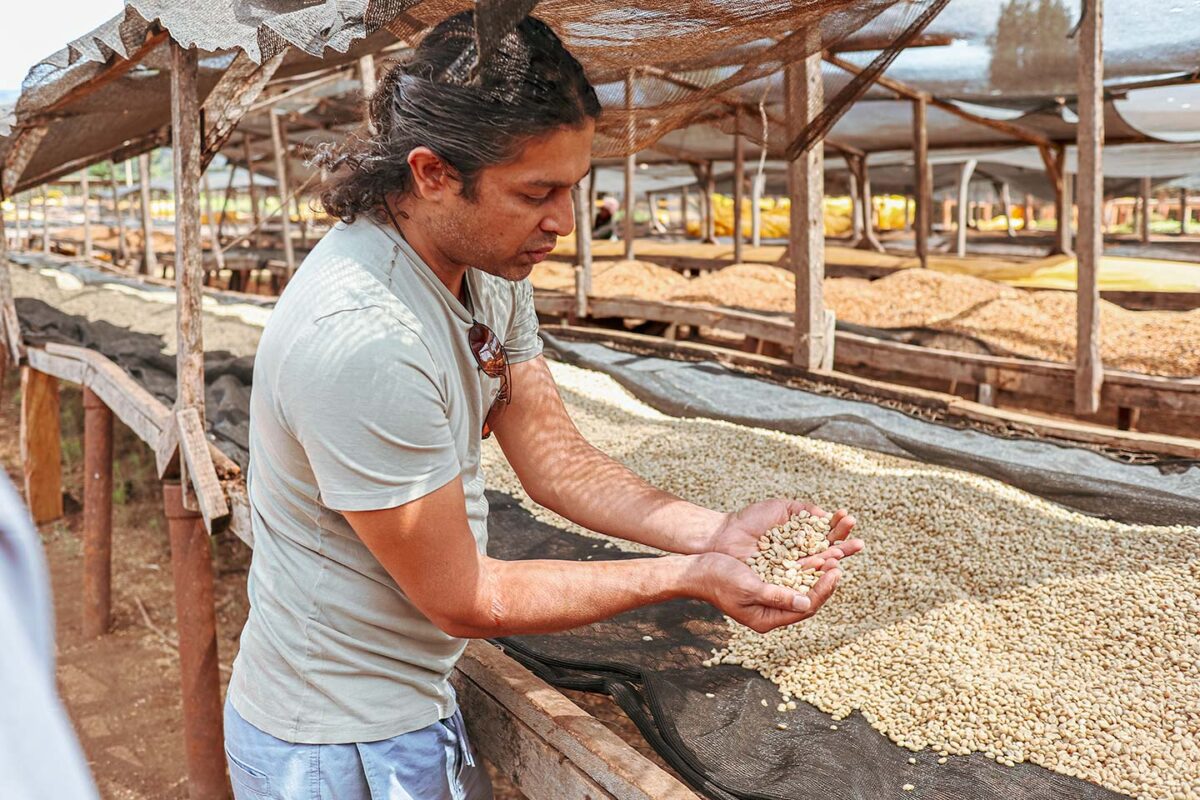
I felt really lucky to meet Leon from Acacia Hills Coffee Estate, who was meticulous in presenting how everything works, every step in the farm, and the challenges they have with the people they work with there. In Kenya, at the Njemu Coffee Estate, the Nyaga family impressed me with their commitment, for example, how they always wash their hands before touching the parchment coffee or cherries. And then in Tanzania, at the Edelweiss Farm, I was blown away by Neel’s technology and processing method, especially how they improved quality by resting the cherries in bags for three days to ripen.
Having seen all that, now I’m back in Romania, as I look at the customers smiling and laughing and enjoying the coffee, I remember the producers I met. I think this is all thanks to their hard work. Being reminded of that was the greatest gift from this visit, and I’ll never take that for granted.
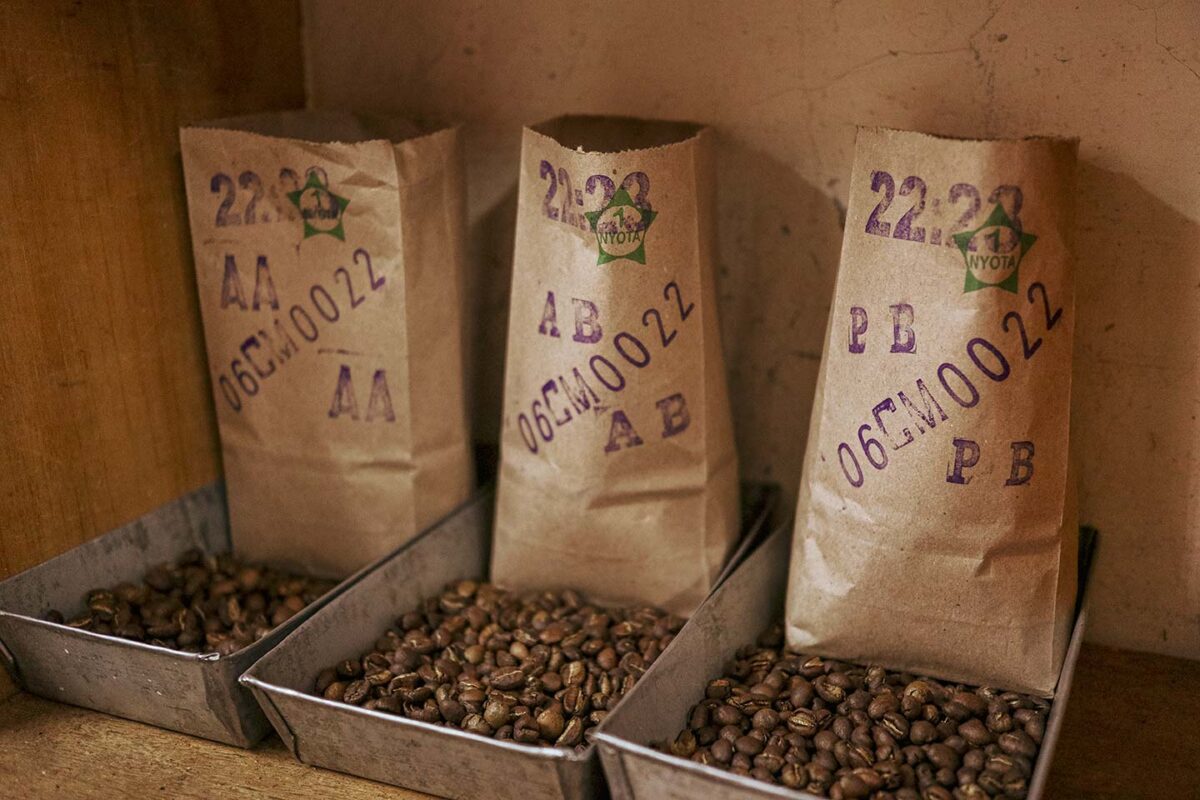
At the same time, this visit has not changed how I’ll select my beans. Our coffee is bought and roasted for the customer, for a market and for a specific demand. The average monthly net salary in Romania is around 850 euros, which is not enough to splash out on luxury items. To survive as a business and to have a sustainable share of the market, we need to be able to source specialty produce which is both good, and affordable. Visiting the origin hasn’t changed that fact.
But I do think that we need to work on changing the value perception of coffee. We need to try and increase the amount people are willing to pay per cup. Because specialty coffee as a crop is really labor intensive, almost on a par with vanilla.
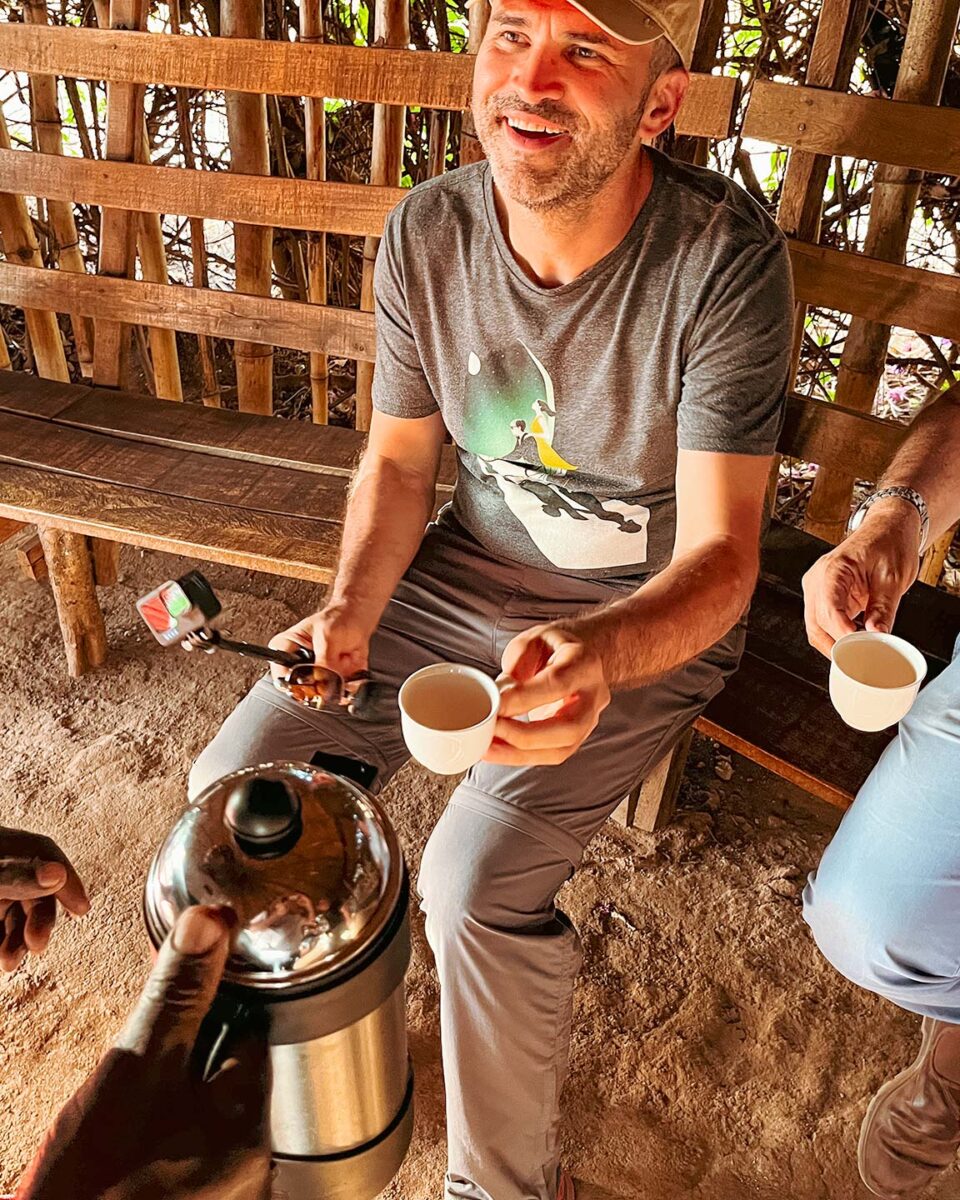
Workshops are an effective way for us to do this. They allow us to enjoy coffee and also share information about the farms and the people, so the participants can really get the magic of the coffee, and understand how fortunate we are. It’s a chance to learn more about the people behind the coffee: their lives, their goals and their challenges. This in-person communication helps change the perception of what specialty coffee is, how much work it takes, and how fortunate we are to have it in our cup every day. And as people learn, they’ll be willing to pay a fairer price.
It’s not an easy thing to do, but if the customers can’t visit the origins on their own, then we have to help them experience it in their minds and hearts. My job is to transfer my passion for coffee, as honestly and sincerely as possible, to other people. I need to be proactive in disseminating my love of coffee, and letting people know how I feel, what I know, and my passion for this.

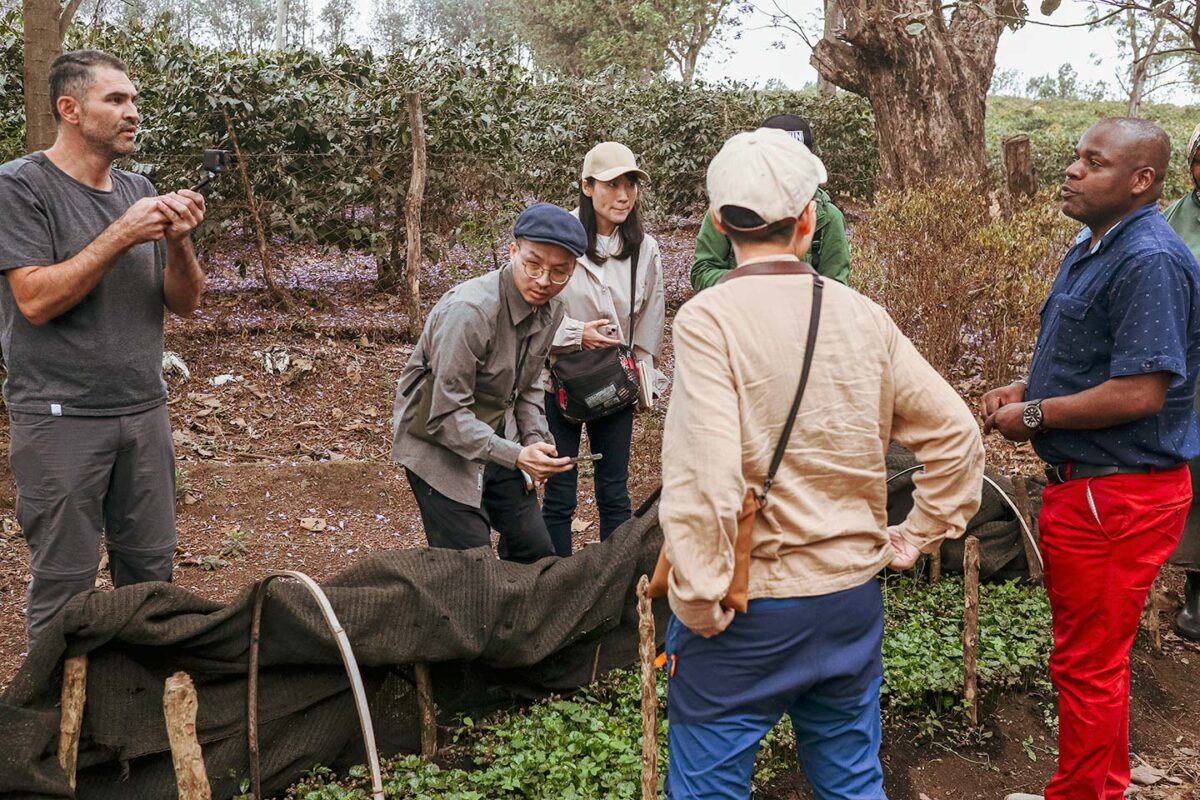
Not taking anything for granted
I knew this trip was going to be an opportunity to learn, so I didn’t have any specific expectations, and I was open to every bit of knowledge, information, and human contact I could interact with.
But this is basically how I approach every aspect of my life. I cherish every moment and when I talk to somebody, I like to pay attention and be mindful about the moment. It’s about the people you encounter, either your friends, the members of the team you’re working with, or family. It doesn’t matter. It’s about understanding and being present. And that’s why I choose not to have social media.
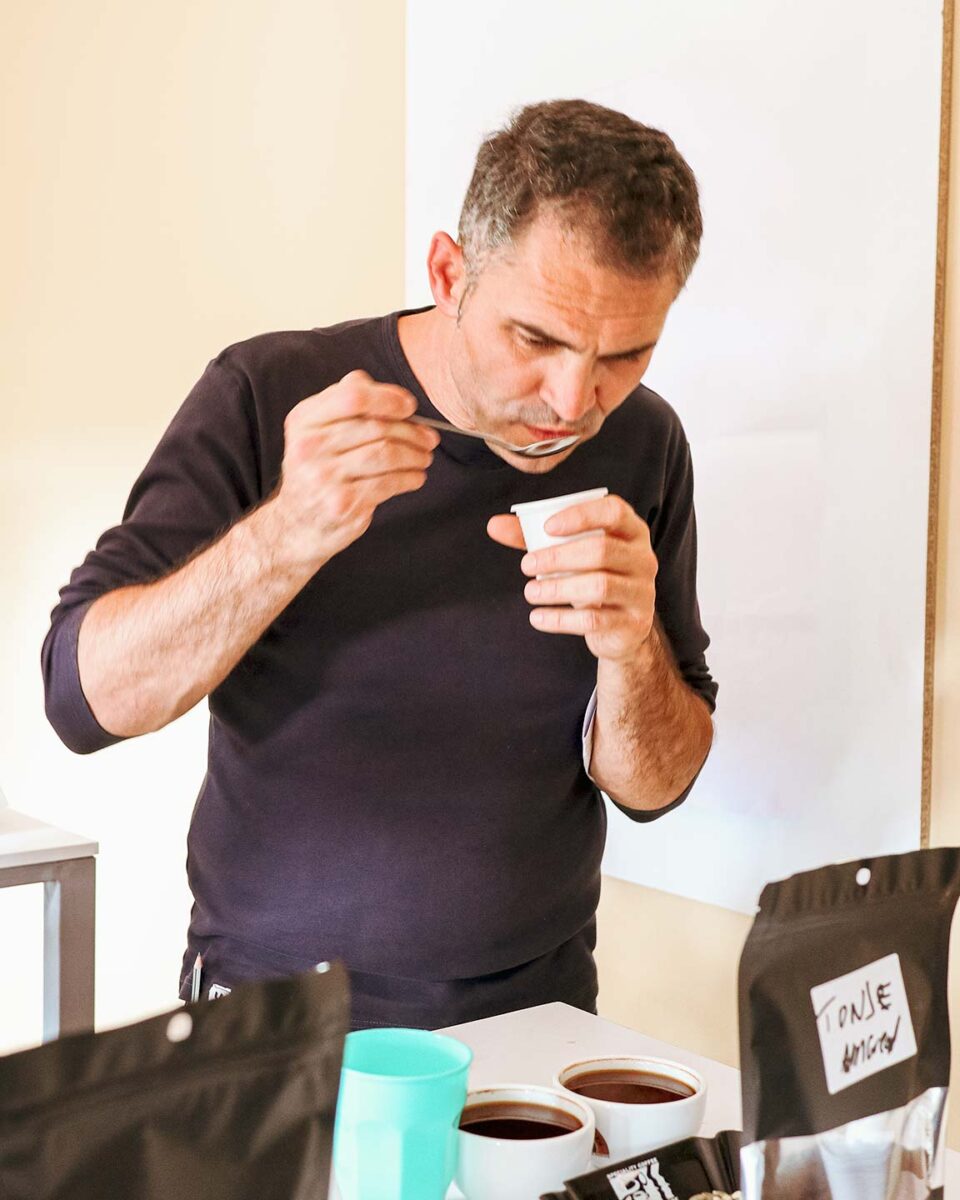
When it comes to coffee, nothing beats a customer telling me to my face how great it is. We have good ratings and great feedback, which is nice. But when they are saying something to you directly, that’s important. That’s where the communication is. I guess I know how precious this life is, and I never want to take it for granted.
15 years ago, just before I turned 30, I had an accident which changed my perspective on life. Back then I was running a logistics company but it was just a way to make a living. There was nothing about it that I enjoyed. But the accident completely changed my perception. I realized that every moment is a gift and needs to be cherished.
After the accident, coffee was a second gift. You have this raw bean and you add hot water or even cold and then you create this amazing beverage, this amazing product with more than 1,000 aromatic compounds. It’s incredible to think I can earn money from something so simple, yet so complex. I’m really fortunate. The first coffee in the morning is always the start to another great day.
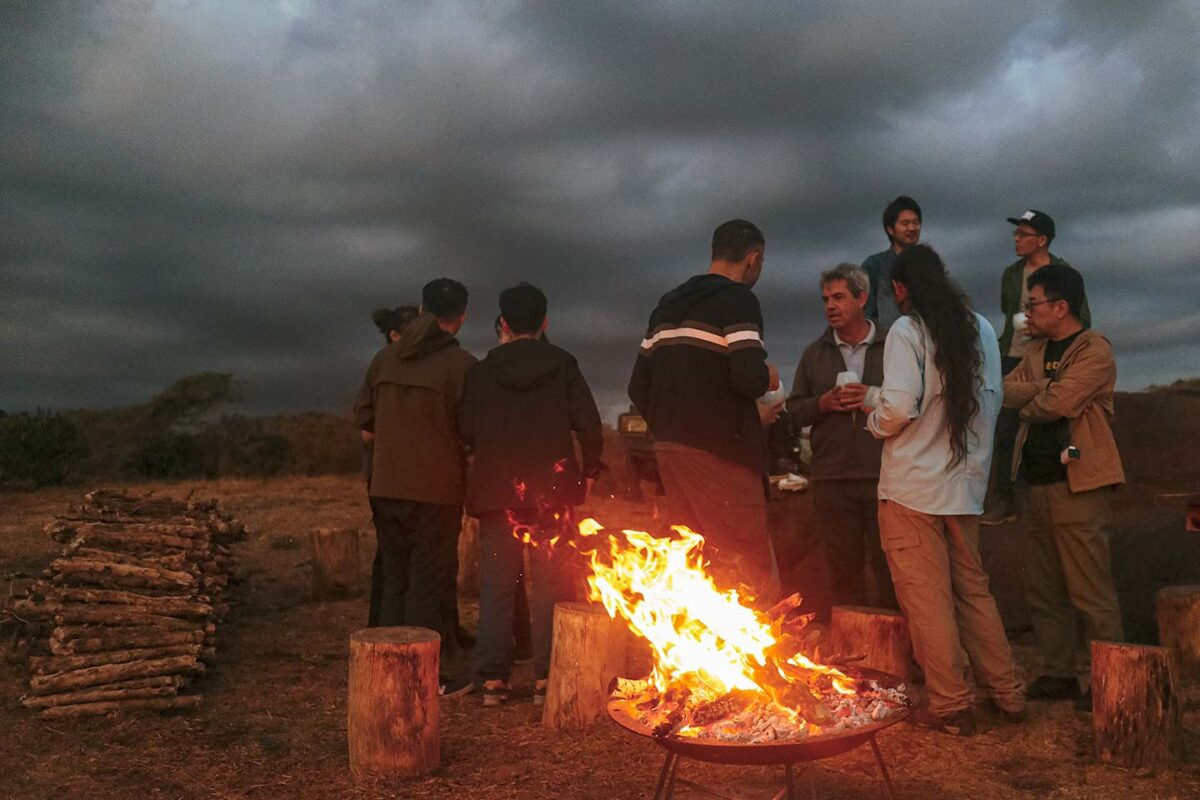
Good or bad, people get used to their environment. As time goes by, you might think that my appreciation for life will fade and I’ll begin taking it for granted. But it’s not something I need to try and do, it just is. In fact, if I had to force myself to be grateful, then it wouldn’t really be from the heart.
What goes up must come down. You can’t keep something at a really high level of interest all the time. You can’t keep a really high level of awareness all the time. So it’s a cycle. And maybe I’ve learned to accept that cycle. But, even if we don’t look for it, there’s always something to learn. There’s always something to improve. There’s always something we could be doing better.

YUME Coffee Roasters
- [Open]
- 8:00 - 17:00








